A Changing Paradigm in High School Mathematics
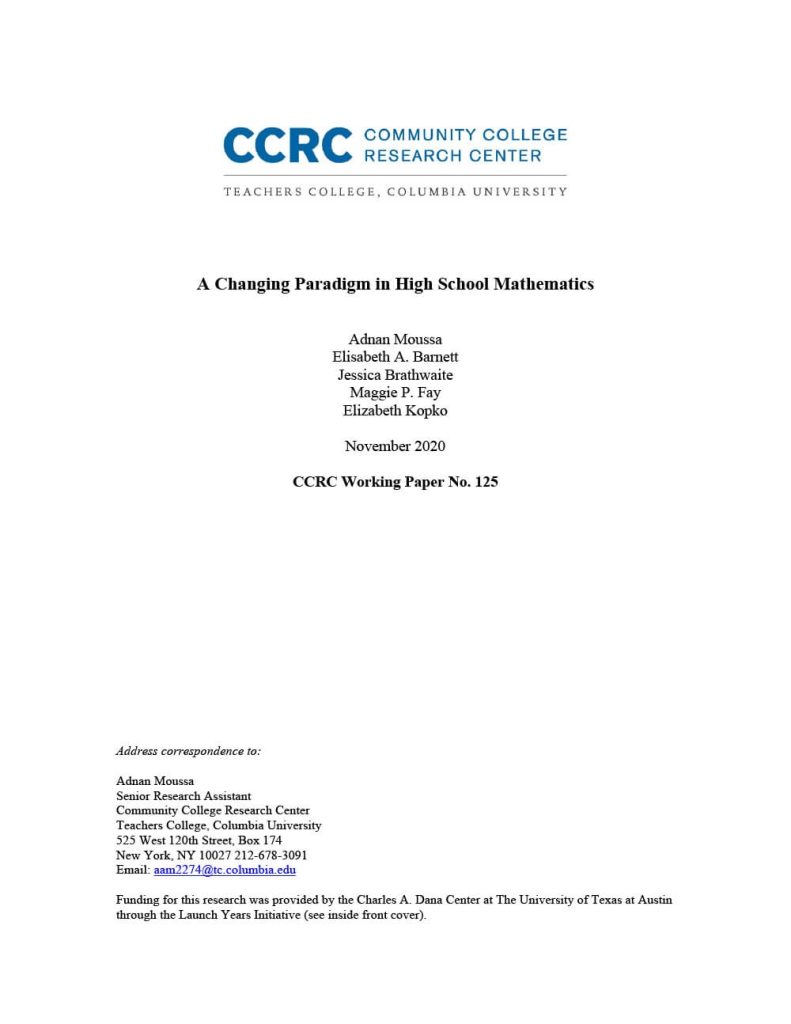
This paper examines challenges embedded within the prevailing high school mathematics course sequence, which prioritizes algebra, and explores innovations that aim to provide curricula and pedagogy more aligned with students’ academic and career goals.
Improving Developmental and College-Level Mathematics: Prominent Reforms and the Need to Address Equity
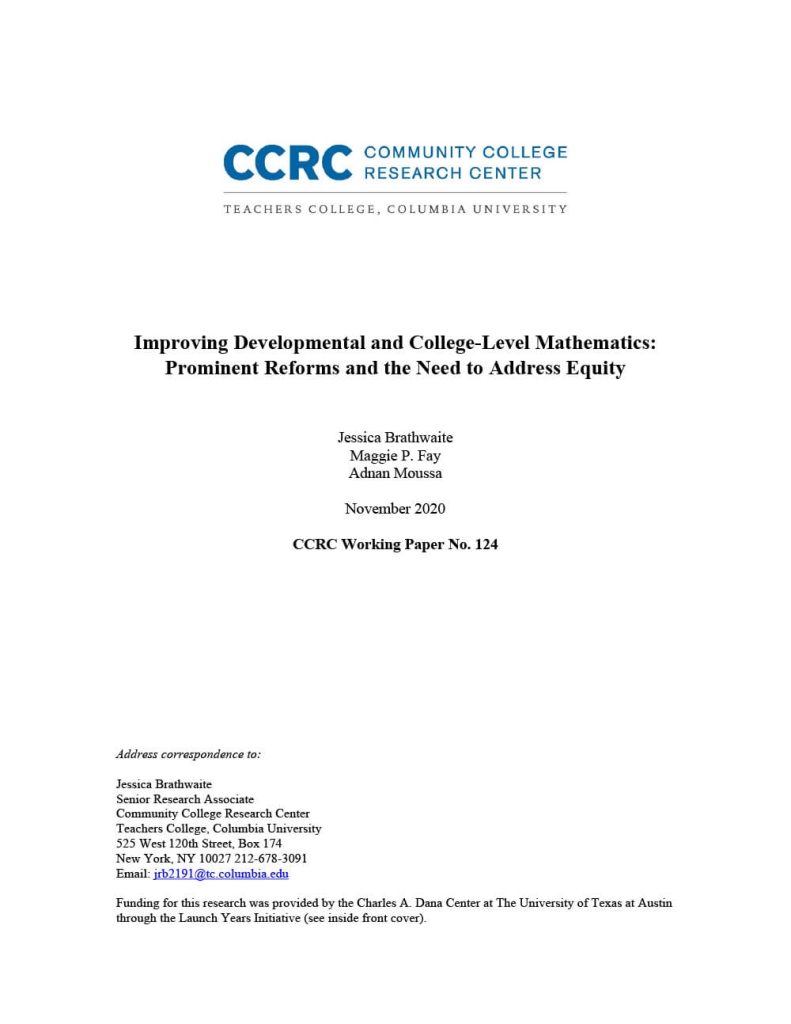
This paper examines the equity implications of existing reforms to developmental math and explores the potential of more targeted reforms to address factors such as stereotype threat, math anxiety, instructor bias, and tracking.
Funding Guided Pathways: A Guide for Community College Leaders
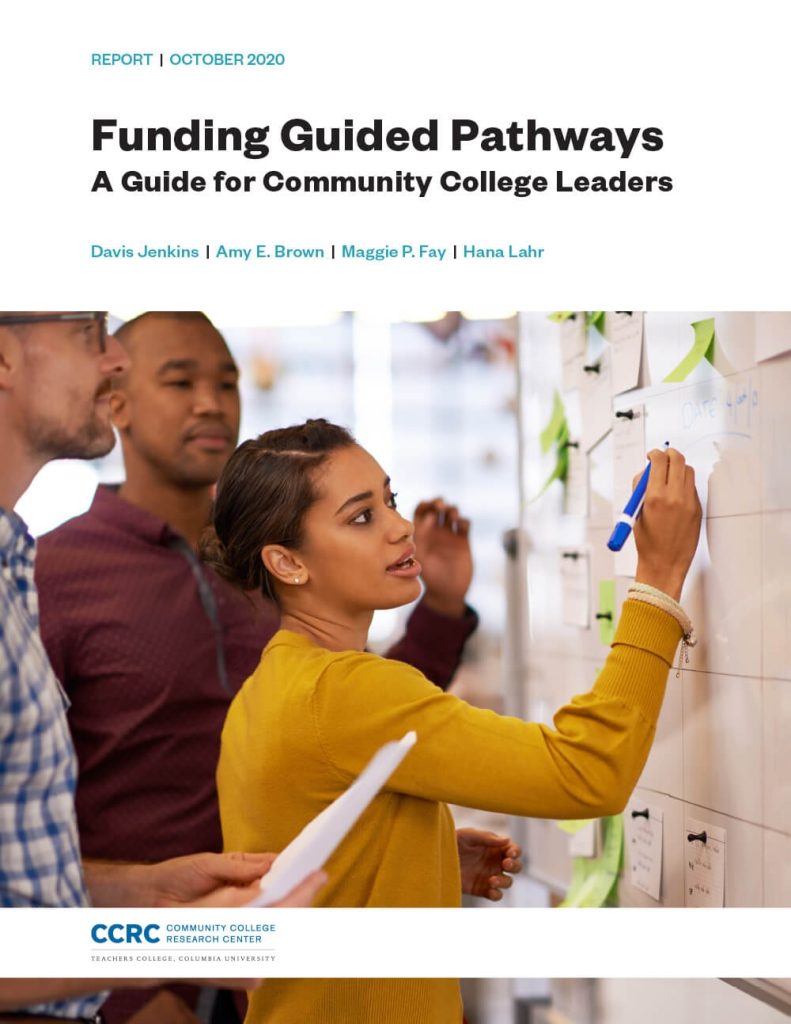
Drawing on research at six institutions, this guide is intended to help community college leaders understand the costs involved in implementing guided pathways reforms and develop plans for funding and sustaining them.
The Economics of Guided Pathways: Cost, Funding, and Value
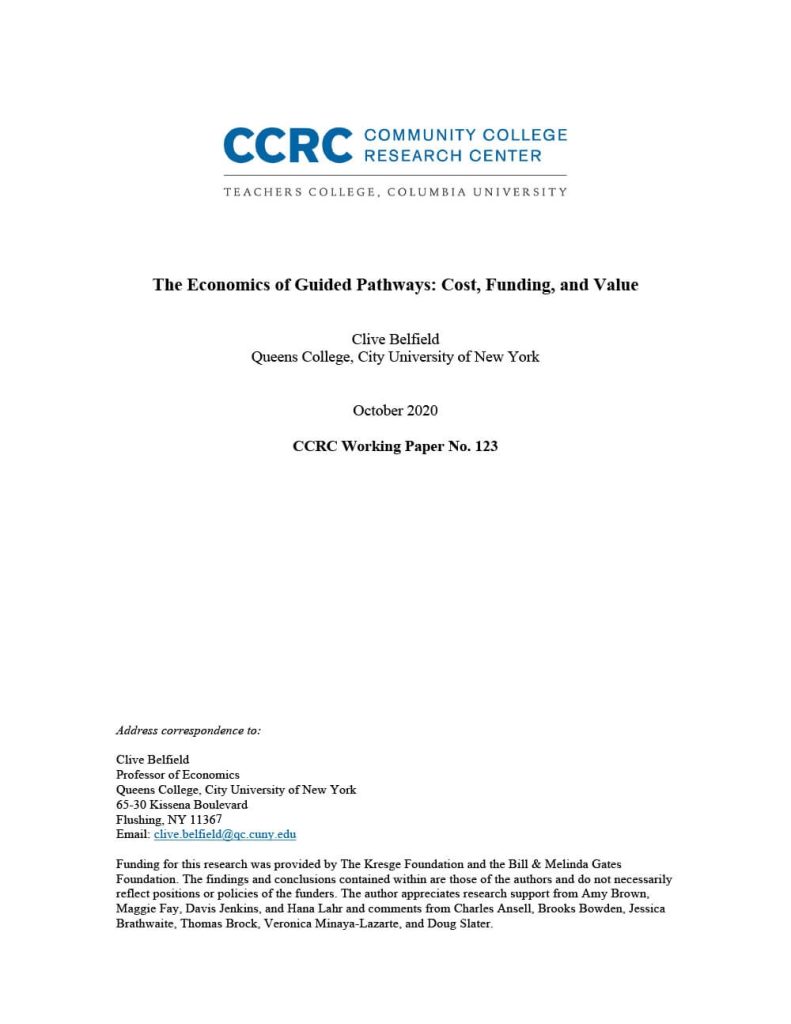
Drawing on data from 12 community colleges, this paper analyzes the resources required to implement guided pathways reforms and examines their feasibility and affordability, as well as their value for students.
Who Should Take College-Level Courses? Impact Findings From an Evaluation of a Multiple Measures Assessment Strategy
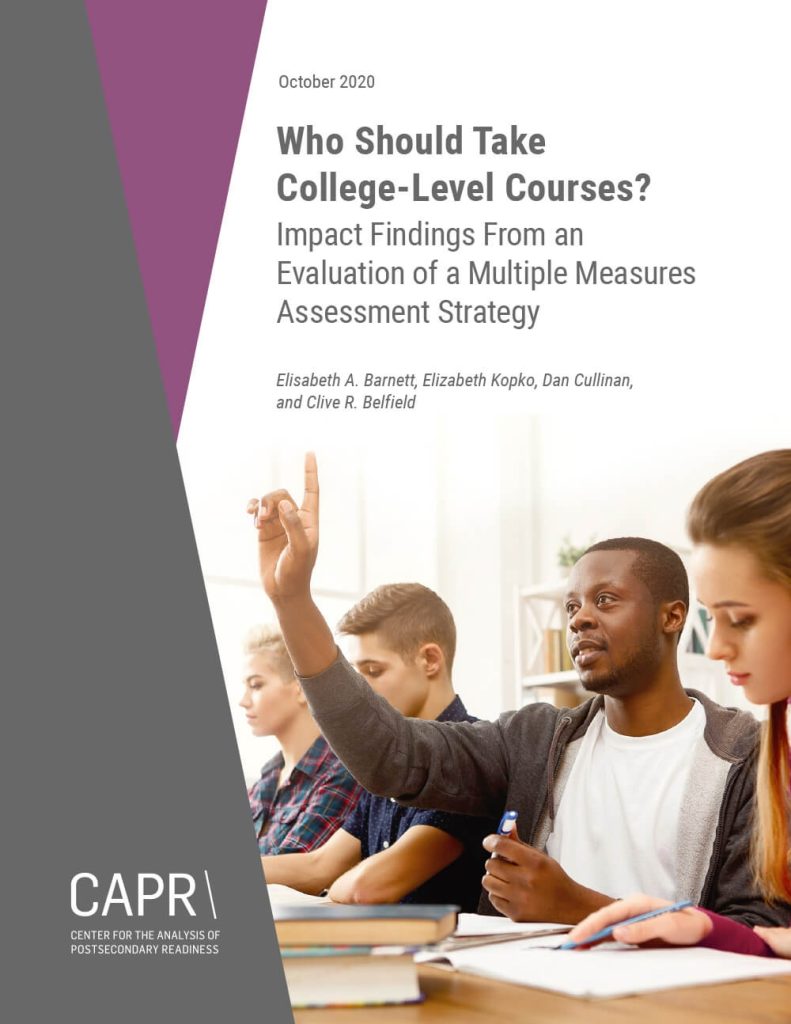
This report describes impact findings from an evaluation of multiple measures assessment and placement at seven State University of New York (SUNY) community colleges.
